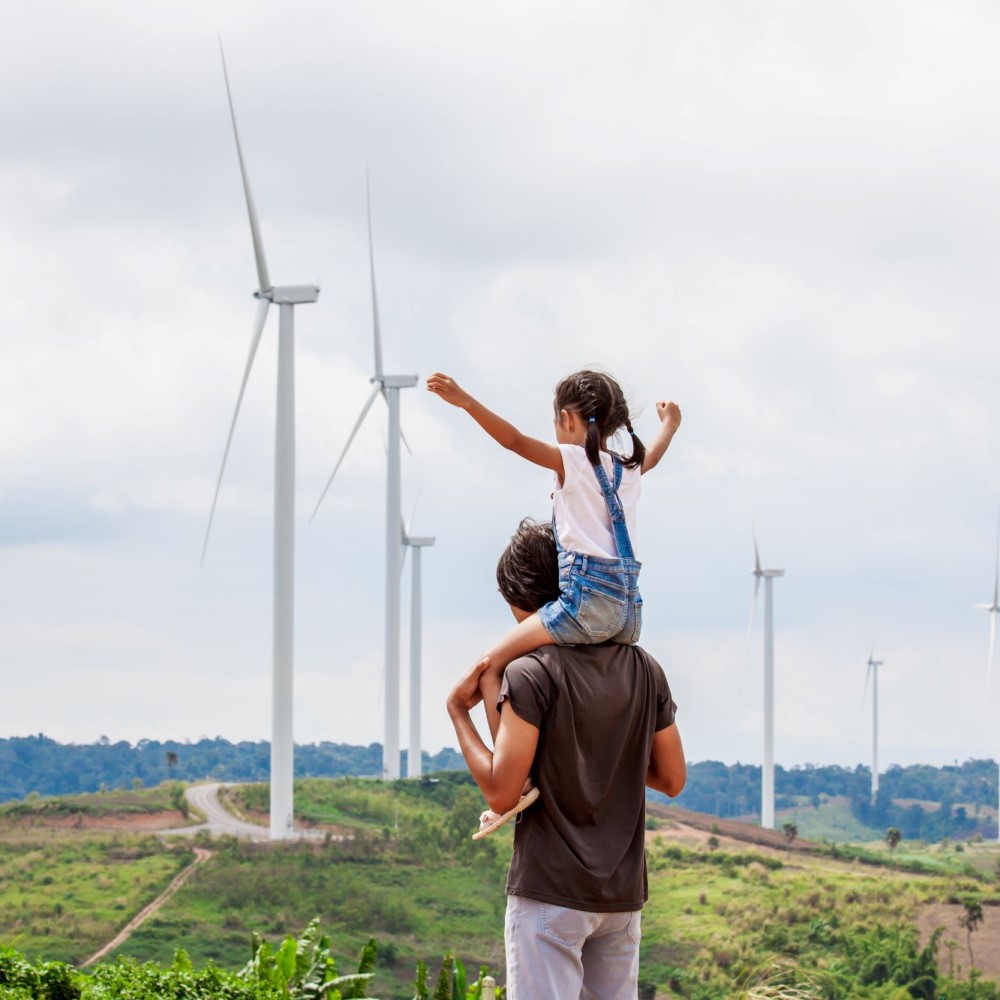Our Vision
Conservation policies and practices in the Interior West are drivers of equity and are sustained politically, socially, and economically through diverse people and partners, who have a shared vision for their communities, and where diversity of people and biodiversity thrive.
Our Solution
WRA leverages its policy and advocacy expertise to integrate and drive conservation equity by working in partnership with those most impacted by policies of the past, co-developing solutions that affirmatively benefit disproportionately impacted and low-income communities and becoming a more inclusive and diverse organization.
What is Equity?
Unlike equality, which means treating everyone the same, equity means providing everyone with the opportunities they need to succeed and thrive. We cannot promote equity without first acknowledging that historically oppressive systems and societal constructs have contributed to differing opportunities, access, and resources for many in our Nation and the Interior West. Once we recognize the disadvantages arising from these injustices, we can more effectively work to dismantle inequitable and unjust mechanisms that create barriers to all living, sharing, and thriving in cleaner, healthier places.
The Intersection of Environment and Justice
It is no secret that the conservation movement has regularly failed people of color. Additionally, there is a long history systemic and societal inequitable treatment in the Western United States of Indigenous populations. Over the last four years, WRA has developed a deeper understanding of how social inequalities threaten both lives and livelihoods of people across the West. While every person is affected by the climate crisis, diverse communities and Black, Indigenous, Latino/Latina, Asian, multiracial, and biracial people bear a far higher burden from climate inaction. In addition, these individuals and communities have, to a large degree, been excluded from decision making where conservation policies are designed and advanced, which has had and continues to have a detrimental effect on many aspects of their lives.
We can’t adequately or appropriately address climate change without addressing environmental justice and working closely with those most impacted by the complex problems facing the West. We recognize that there can be no climate justice without significant pollution reductions, focused in areas that have, for far too long, borne a disproportionate burden of climate pollution. This is the cornerstone of our plans in 2023 and beyond.


Water
We work to be an active ally in elevating Indigenous involvement in water management decision-making forums in the Colorado River Basin and seek out opportunities to work with Indigenous communities on common goals by providing technical and government affairs support.
We also work to build relationships with Indigenous communities to understand their water needs and challenges. We work with tribal communities to co-create and utilize new water management policies to enable water supply, drought resilience, and stream protection projects to further mutual objectives that embrace science and respect traditional knowledge, economic development, and cultural values.

Energy
We work to create connections with community partners to learn about the issues they face, share technical expertise, and co-create energy policy.
Just and Equitable Transitions
Transition to clean energy will reduce the use of fossil fuels for energy production, increase renewable energy sources and create energy resilience, and create jobs. Even so, fossil fuel extraction industries have been major economic engines for many communities around the West and as coal power plants and mines close, it is critical to support those who economically relied on them. With this in mind, WRA is working in several states to help make sure these transitions away from fossil fuel energy are happening in a just and equitable way.
WRA has been fully engaged in the coal transition in Arizona, working with the Arizona Corporation Commission to address funding, repurposing of plants and facilities, and benefits and impacts to ratepayers. Several Indigenous communities and the budgets of tribal governments substantially depend on the money generated from these power plants and coal mines. We are committed to advancing a fair and equitable transition from coal power to clean energy sources to avoid detrimental economic and human impacts. For example, WRA advocates for the siting of new clean energy power plants in proximity to switch yards and transmission lines already in place from shuttered coal plants, creating new jobs and continuing and often increasing tax revenue in these communities.
Access to and Affordability of EVs
Early EV adoption has been greatest among affluent, white Americans, despite such populations only making up a small percentage of the country. In contrast, communities most impacted by poor air quality and who spend the largest shares of their income on transportation have seen minimal EV adoption because of several barriers. Historically disadvantaged communities and low-income households face greater financial and logistical barriers to EV adoption. Utilities must actively work to reduce the barriers for EV adoption among all communities. WRA’s “Overview of Utility Transportation Electrification Plans” report contains several strategies for making electric vehicles more equitable, accessible, and affordable, like higher levels of investment in underserved areas, minimum investment standards, and point of sale rebates.

Land
Access to outdoor opportunities has been privatized for millions of acres of public lands, creating an inequitable system where only the most wealthy or privileged people are able to access these public lands for camping, fishing, hiking, and hunting opportunities.
WRA advocates for policies that support equitable, sustainable access to outdoor opportunities, create vibrant communities with robust local outdoor economies, and ensure protected access to cultural resources, sacred sites, and living ties to the land.
We work to secure policies that guarantee inclusive governance and sustainable, equitable access to outdoor recreation and promote policy to ensure that decision making about land management has strong and inclusive public comment, review, and oversight.
We strive to ensure access to public lands is equitable for all and not based on personal wealth, privilege, or social connections through projects like creating and securing dedicated funding for Outdoor Equity Offices and Funds in each state.
Our Commitments
We commit to:
- Learning from and embracing differences.
- Being a place where every member of our team feels that they can bring their authentic self to the workplace to promote the greatest sense of belonging.
- Creating an organization – and contributing to a larger conservation movement – that is diverse, equitable, and inclusive of people from all backgrounds.
- Entering our work with the intent to collaborate, listen, and be an ally for change that will make our environment and communities healthier, safer, more resilient, and more equitable.
- Pursuing equitable conservation outcomes.
- Making diversity, equity, and inclusion key components of our strategy and our vision.
Acknowledgment
We acknowledge that we will always have work to do to embody and demonstrate these values and commit ourselves fully to that continuous growth. We understand that meeting our commitments requires a continual process of learning, humility, and openness to feedback. Western Resource Advocates is committed to hearing about the experiences or observations shared by the communities that we seek to engage and changing course as needed. Please reach out to Kathryne Grove, Vice President of Equity and Culture, for further dialogue on WRA’s goals and strategies.

